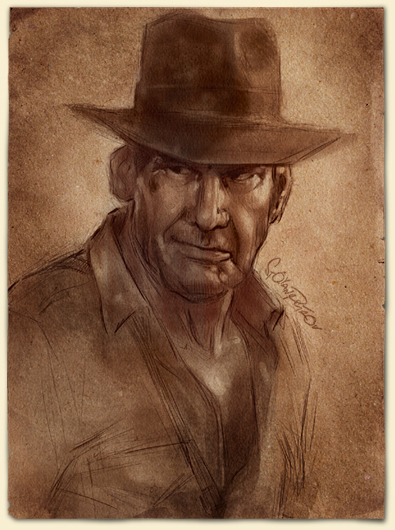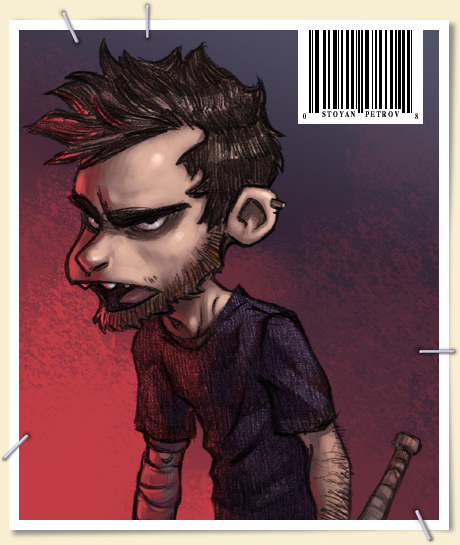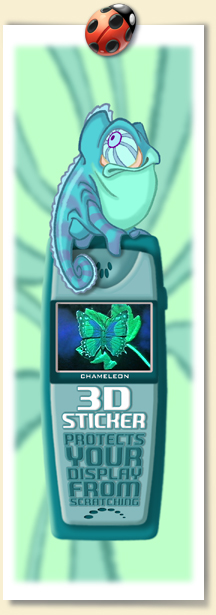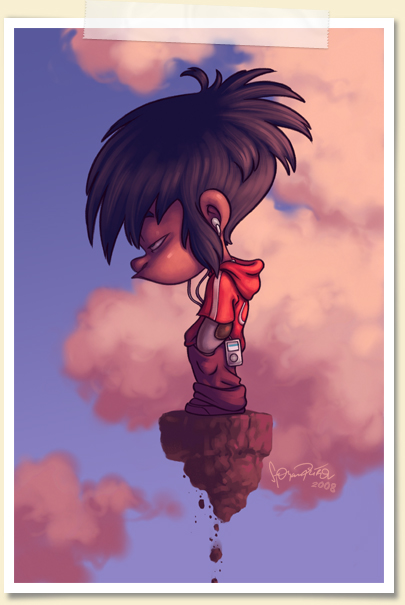 Indiana Jones is ™ & © Lucasfilm Ltd.
Indiana Jones is ™ & © Lucasfilm Ltd.Tuesday, June 10, 2008
Saturday, May 10, 2008
Friday, May 02, 2008
Dave
 I am currently reading Michael Crighton's Next and yesterday I suddenly felt like making some fan-art. So here's Dave - half-man, half-monkey, Dave's some sort of a transgenetic species. (Or whichever the right term may be.) I drew him like 10 years older than he appears in the book cuz I wanted to see how would he look like as a teenager...
I am currently reading Michael Crighton's Next and yesterday I suddenly felt like making some fan-art. So here's Dave - half-man, half-monkey, Dave's some sort of a transgenetic species. (Or whichever the right term may be.) I drew him like 10 years older than he appears in the book cuz I wanted to see how would he look like as a teenager...Monday, April 21, 2008
Thursday, April 03, 2008
[Advertising Space]

Here's the front side of a packing I designed for a friend like five years ago. He was planning to sell protective hologram stickers for cell phones and he needed some sort of a picture mount where the stuff had to be attached to. The phone was entirely drawn with the lasso tool in Photoshop 6, so don't be too harsh on me - it was my first try as a wannabe designer...
By the way, did you know that all Chameleons are able to change their skin color not only as an expression of their physical and physiological condition, but also as a method of communication, including to make themselves more attractive to potential mates. They have specialized cells, collectively called chromatophores, that lie in layers under their transparent outer skin.
The cells in the upper layer, called xanthophores and erythrophores, contain yellow and red pigments respectively. Below these is another layer of cells called iridophores or guanophores, and they contain the colourless crystalline substance guanine. These reflect, among others, the blue part of incident light. If the upper layer of chromatophores appears mainly yellow, the reflected light becomes green (blue plus yellow). A layer of dark melanin containing melanophores is situated even deeper under the reflective iridophores. The melanophores influence the 'lightness' of the reflected light. All these pigment cells can rapidly relocate their pigments, thereby influencing the colour of the chameleon...
Anyway, I typed this only to fill out the gap to the right of the image. =P
By the way, did you know that all Chameleons are able to change their skin color not only as an expression of their physical and physiological condition, but also as a method of communication, including to make themselves more attractive to potential mates. They have specialized cells, collectively called chromatophores, that lie in layers under their transparent outer skin.
The cells in the upper layer, called xanthophores and erythrophores, contain yellow and red pigments respectively. Below these is another layer of cells called iridophores or guanophores, and they contain the colourless crystalline substance guanine. These reflect, among others, the blue part of incident light. If the upper layer of chromatophores appears mainly yellow, the reflected light becomes green (blue plus yellow). A layer of dark melanin containing melanophores is situated even deeper under the reflective iridophores. The melanophores influence the 'lightness' of the reflected light. All these pigment cells can rapidly relocate their pigments, thereby influencing the colour of the chameleon...
Anyway, I typed this only to fill out the gap to the right of the image. =P
Saturday, March 22, 2008
Preloader
This is the very first preloader that I made for the initial version of my personal website two years ago. Unfortunately, this flash file never got used, because I changed the whole concept a couple of times before the launch of HomeworkCinema in may 2006.
Monday, March 03, 2008
Memorial

March the 3th is a very special date in my country's history. After almost five centuries of Ottoman domination, on this day, 130 years ago, the Bulgarian state was reestablished as the Principality of Bulgaria. This event was a result of The Russo-Turkish War (1877-1878) that consisted of four battles between Russia and the Ottoman Empire. The image on the left is a replica of the actual memorial, raised on the top of the historic Shipka Pass where the crucial military actions took place. Additional information on the subject is available here and here. Optionally, there's a vast collection of photographs (including ones of The Shipka Monastery) over at Flickr and Photobucket.
Subscribe to:
Posts (Atom)


